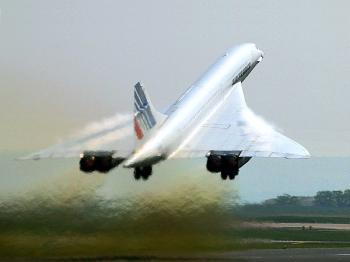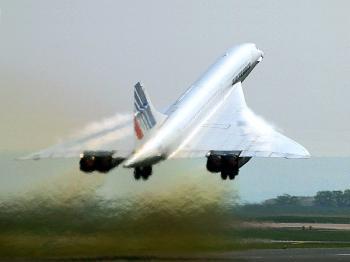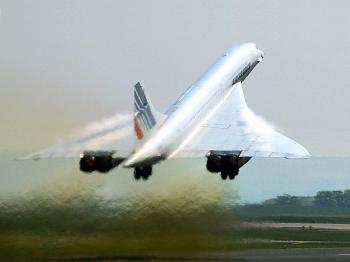The trial over the dramatic crash of Air France’s Concorde supersonic airliner, the only one ever to crash, is underway in Pontoise, France, 10 years after the fact. Charges of manslaughter have been filed against five individuals and Continental Airlines. They are accused of being responsible for the deaths of 109 people aboard the ill-fated luxury jet plus four more hotel-workers killed where the jet came down.
The jet crashed several minutes after taking off from Paris Charles de Gaulle Airport on July 25, 2000. Most of the passengers were wealthy German tourists heading to New York for a Caribbean cruise; among them three children.
The proceedings are expected to last at least four months and cost over $4.2 million.
Few representatives of the victims were present in the court as most of them agreed to accept financial compensations from Air France, EADS Aerospace firm, Continental and the Goodyear tire manufacturer in exchange of not filing charges. The total amount of the settlement was never made public, but sources say around $100 million was distributed between more than 700 relatives.
Among the charged is Continental Airlines and two senior employees of the company: welder John Taylor and his superior Stanley Ford. They are believed to bear partial responsibility for the crash.
Henri Perrier and the plane’s chief engineer Jacques Herubel, both from Concorde, owned by Air France, are also named in the lawsuit.
The sixth accused is Claude Frantzen, former director of the French civil aviation authority.
The hearings began with reading out the names of those killed in the accident.
If the judges find Continental guilty, the company will need to pay a maximum of $520,000. Each of the individual defendants may face fines of up to $104,000 plus a maximum of five years in jail.
The jet crashed several minutes after taking off from Paris Charles de Gaulle Airport on July 25, 2000. Most of the passengers were wealthy German tourists heading to New York for a Caribbean cruise; among them three children.
The proceedings are expected to last at least four months and cost over $4.2 million.
Few representatives of the victims were present in the court as most of them agreed to accept financial compensations from Air France, EADS Aerospace firm, Continental and the Goodyear tire manufacturer in exchange of not filing charges. The total amount of the settlement was never made public, but sources say around $100 million was distributed between more than 700 relatives.
Among the charged is Continental Airlines and two senior employees of the company: welder John Taylor and his superior Stanley Ford. They are believed to bear partial responsibility for the crash.
Henri Perrier and the plane’s chief engineer Jacques Herubel, both from Concorde, owned by Air France, are also named in the lawsuit.
The sixth accused is Claude Frantzen, former director of the French civil aviation authority.
The hearings began with reading out the names of those killed in the accident.
If the judges find Continental guilty, the company will need to pay a maximum of $520,000. Each of the individual defendants may face fines of up to $104,000 plus a maximum of five years in jail.







